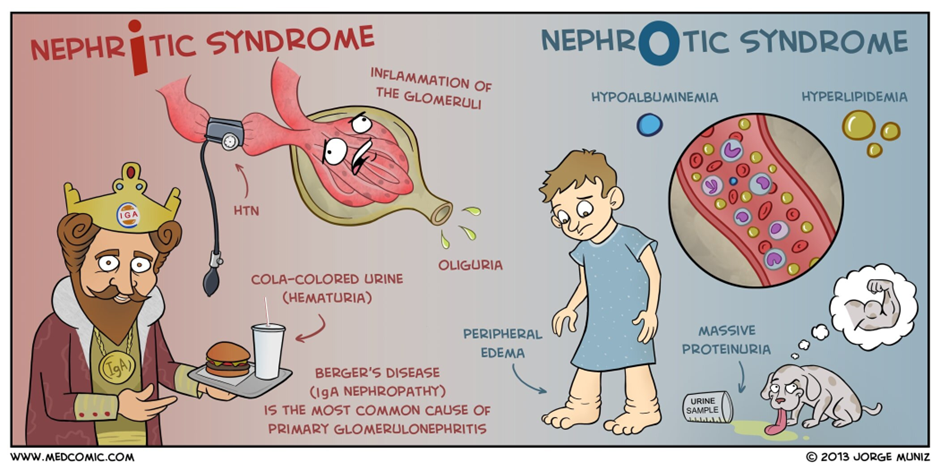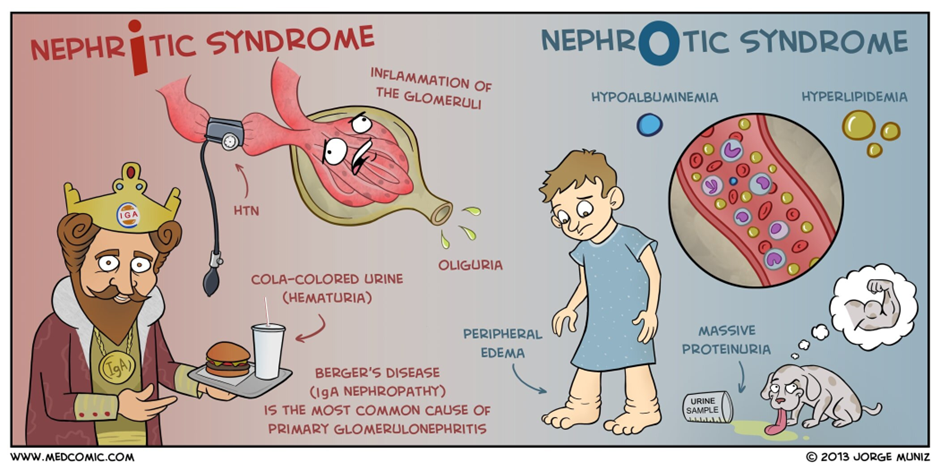ATI LPN EXAM
ATI LPN EXAM ( 47 Questions)
The nurse suspects the 4-year-old client is having a recurrence of minimal change nephrotic syndrome (MCNS) Which signs or symptom would the nurse observe in the client?
Proteinuria:Minimal change nephrotic syndrome is characterized by increased permeability of the glomerular filtration barrier, leading to proteinuria. The loss of proteins, especially albumin, in the urine is a key feature.

Hypocalcemia:Hypocalcemia is not typically associated with MCNS. In fact, the loss of proteins, including albumin, in the urine can lead to decreased oncotic pressure in the blood vessels, resulting in edema. However, calcium levels are usually within the normal range.
Hyperalbuminemia:
This is not a characteristic finding in minimal change nephrotic syndrome. In fact, the condition is associated with hypoalbuminemia due to the loss of albumin in the urine.
Positive for Ketones:Ketones are not typically associated with minimal change nephrotic syndrome. Ketones in the urine are more commonly associated with conditions like diabetic ketoacidosis or starvation.
A. Proteinuria:
Minimal change nephrotic syndrome is characterized by increased permeability of the glomerular filtration barrier, leading to proteinuria. The loss of proteins, especially albumin, in the urine is a key feature.
B. Hypocalcemia:
Hypocalcemia is not typically associated with MCNS. In fact, the loss of proteins, including albumin, in the urine can lead to decreased oncotic pressure in the blood vessels, resulting in edema. However, calcium levels are usually within the normal range.
C. Hyperalbuminemia:
This is not a characteristic finding in minimal change nephrotic syndrome. In fact, the condition is associated with hypoalbuminemia due to the loss of albumin in the urine.
D. Positive for Ketones:
Ketones are not typically associated with minimal change nephrotic syndrome. Ketones in the urine are more commonly associated with conditions like diabetic ketoacidosis or starvation.

